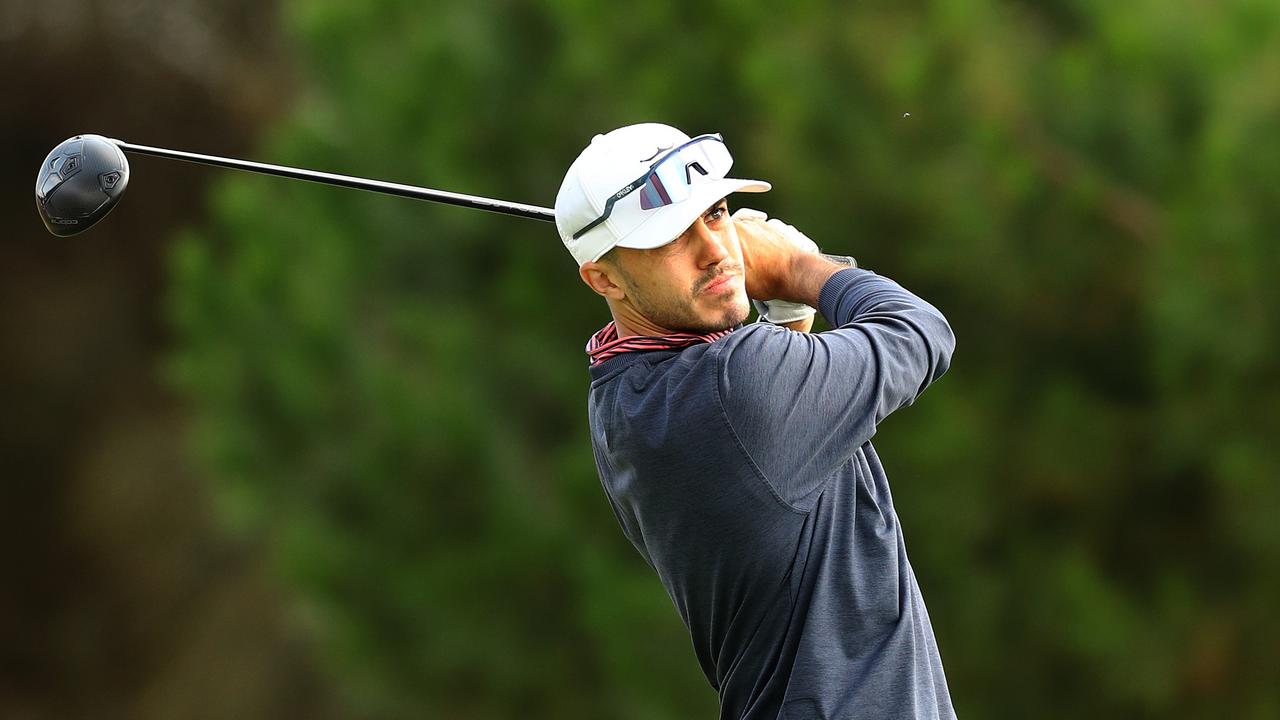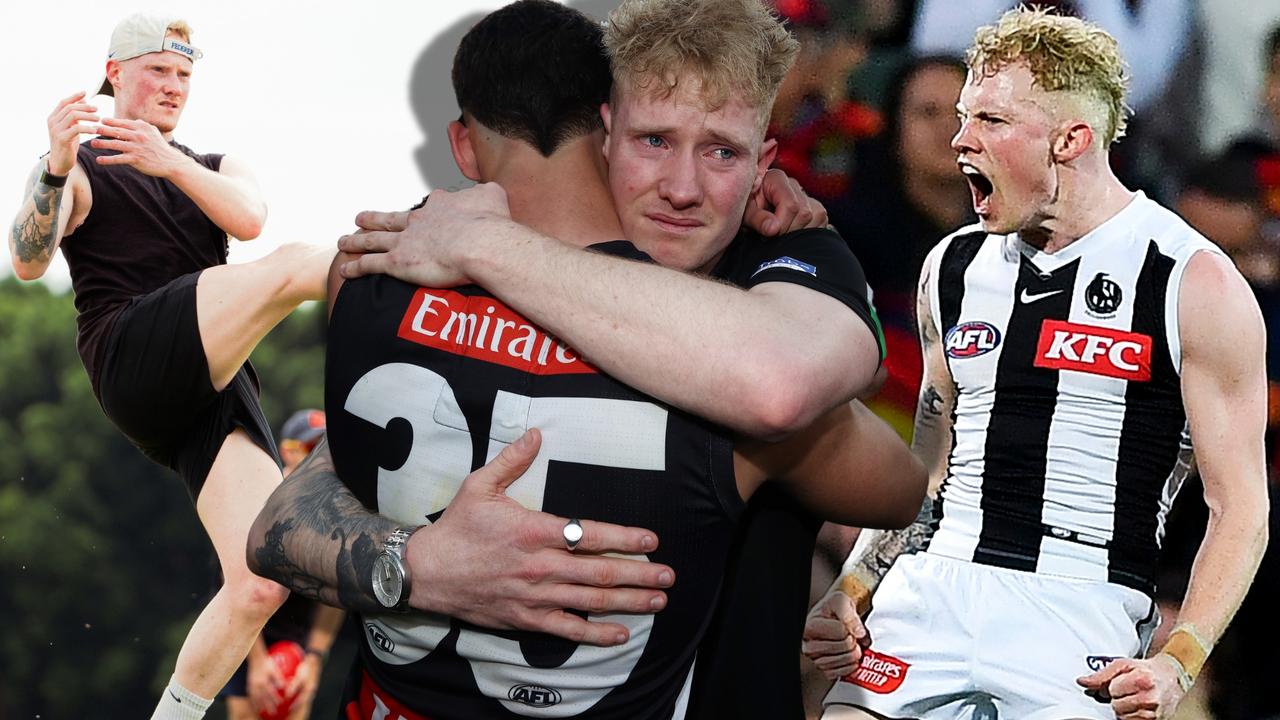Sam Fisher told key St Kilda officials about his drug issues in 2012
He played 228 AFL games, including three grand finals, but Riverland product Sam Fisher is now behind bars facing drug trafficking charges. The warning signs of his demise were clear a decade ago, writes Mark Robinson.
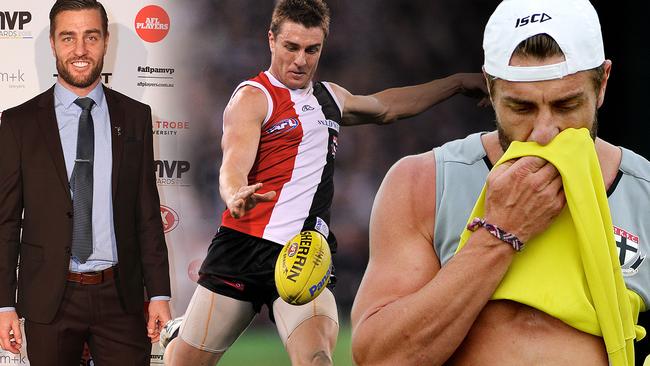
AFL
Don't miss out on the headlines from AFL. Followed categories will be added to My News.
Sam Fisher sat under a tree with two St Kilda officials on the foreshore at St Kilda and told them he needed help to deal with his drug problem.
It was said to be in 2012.
A source told The Advertiser the Saints previously feared Fisher – who was born in South Australia and drafted from West Adelaide in the SANFL – had lifestyle issues, in 2012 and perhaps before that, and were relieved when he sought help.
“Sam’s health at that time was fragile,” the source said.
Another official with knowledge of the situation this week told News Corp: “He opened up about his challenges and that was when the doctor was brought in.
“From that point, everything was through the doctor and that gave him some level of support.
“And he worked with Sam over a quite a period of time.’’
Ten years on, as Fisher sits in a jail cell charged with trafficking drugs interstate, which if found guilty could see him in prison for many years, it has emerged the Saints and Fisher’s teammates tried to help him when he was at the club.
Watch every blockbuster AFL match this weekend Live & Ad-Break Free In-Play on Kayo. New to Kayo? Try 14-Days Free Now >
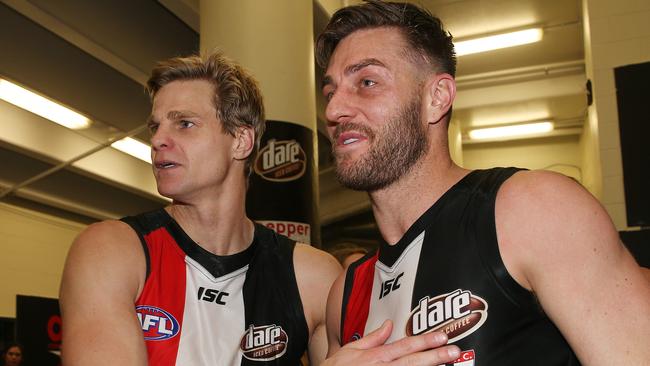
While there is sympathy for Fisher, who was a well-liked teammate, and amid calls for the AFL Players Association to do more to help players transition out of the game, there’s also the belief that people are responsible for their own behaviour.
It’s why club officials were baffled when Fisher wanted to go overseas in the summer of 2012-13 – and to Las Vegas of all places – when he had drugs issues.
“He was on a slippery slope which he had already acknowledged to the club – and people have to help themselves, too – and he wanted to go Las Vegas,’’ a former official said.
“At the time he was counselled strongly about looking after himself in the post-season and probably going to Las Vegas and putting yourself potentially in compromising positions when you’re trying to rehabilitate wouldn’t be a super idea.
“It was strongly recommended not to go.’’
Fisher did an interview with the Herald Sun when he returned from the States. He said he visited America for three weddings, Zac Dawson’s in Vegas, Nick Riewoldt’s in Texas and that of another former teammate, Dylan Pfitzner, who married a Mexican woman.
“The club was challenged by players who thought the club was too hard on Fisher, telling him he couldn’t go to Las Vegas. You have to wonder if they’d say the same thing now,’’ the former official said.
In that same 2013 interview, Fisher denied his life was off the rails because of heavy drug use.
“There’s no truth at all to that,” Fisher said. “There’s no issue with my state outside the footy club.”
Later in 2013, a second interview was organised by the club with this journalist, and the clear indication was Fisher would talk about his drug issues and how he and the club were working to help overcome them.
The interview was held at a cafe in Chapel St, Prahran.
Fisher arrived, we said our hellos, ordered a coffee, and then I pushed the record button.
The first question was something like: So, you’ve had a drug problem and now you’re getting your life back together?
He answered something like: ‘What are you talking about, I haven’t got a problem.’
It was awkward for me and most likely for Fisher.
The interview lasted about five minutes.
Afterwards, I spoke to the club and then to Fisher’s manager Craig Kelly.
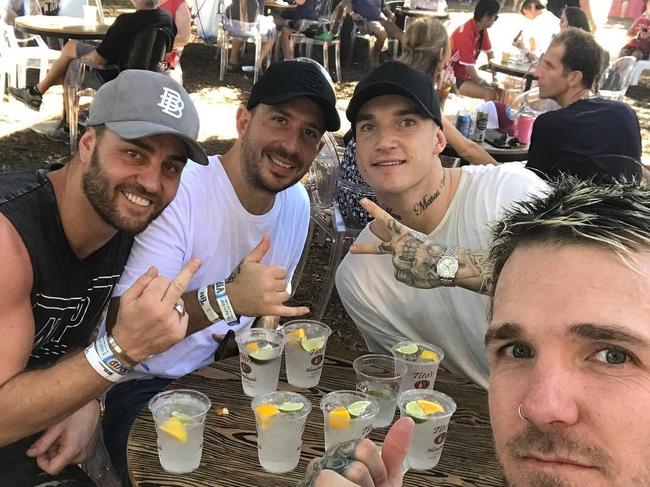
It was agreed, after strong persuasion, that an article about Fisher’s lifestyle would not be written because of the state of his mental health.
An article, it was argued, could tip him over the edge.
A source said Fisher was ‘’in denial for a long time’’.
Contacted this week, Kelly said he could not remember “the exact chat” we had. And he said he wouldn’t comment about “anything now”.
Stories are now emerging about Fisher’s behaviour.
Like him turning up in a state to a St Kilda family day. All the players attended the function, believed to have been held in Frankston. “He basically had to be ushered out,” a source said.
At some early morning training sessions, he would arrive dishevelled. “You could see without any proof, he was pushing it at both ends,” a source said.
Fisher was a much loved figure among teammates and was a superstar player for his four coaches – Grant Thomas, Ross Lyon, Scott Watters and Alan Richardson.
Former Saints captain Nick Riewoldt said this week he and other teammates were concerned about Fisher’s behaviour when he was playing, and post football.
“A lot of his close teammates knew he had some issues, but to this extent, once it was all laid bare last week, I think a lot of us were surprised at just how bad the situation had become,” Riewoldt told Fox Footy.
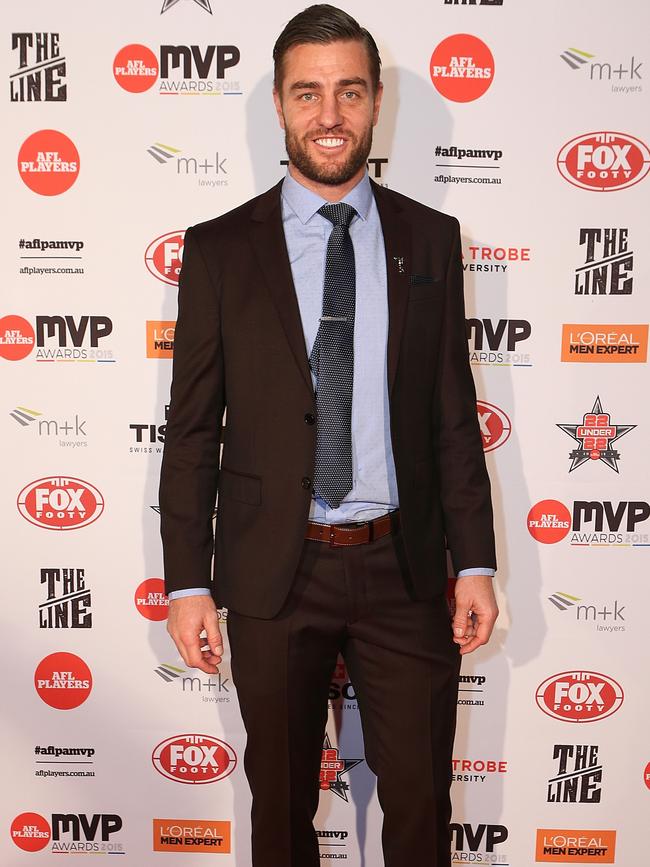
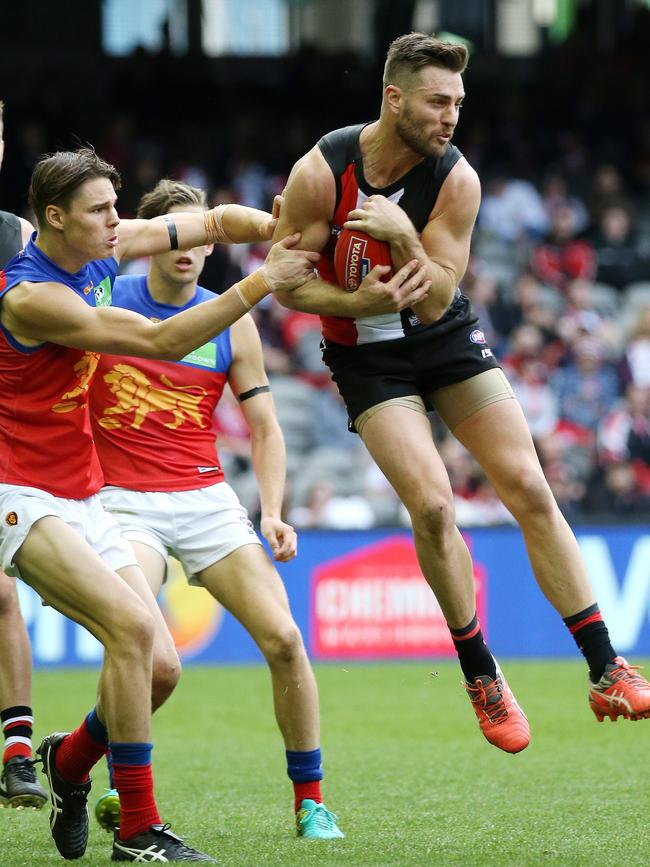
“You do a bit of reflecting around what more could you have done?
“There have been a lot of Sam’s teammates who have done as much as they possibly could, myself included, and some have gone to extraordinary levels involving conversations with family and friends.
“As a group we did as much as we possibly could for Sam but at a time like this, you really realise how out of your depth you are as a teammate, when a player is facing challenges of the kind Sam has faced.’’
Riewoldt also reignited discussion about the AFL’s illicit drugs policy, saying drug abuse was a “massive” issue among current and former players.
It was the second time Riewoldt has challenged the AFL’s drugs policy. In 2019, he said the drug use among players was “out of control” and that players were “taking the piss” by falsely claiming to have substance abuse issues to avoid being penalised.
While Fisher is responsible for his actions and decision making, undoubtedly the Saints will question themselves about whether they did enough to help Fisher.
“Everyone shares a responsibility in actually looking after someone like that,” the former official said.
“Teammates would be the first to know he had a challenge and they would’ve known before anyone else.”
The Fisher story, which has been described as a cautionary tale, has created discussion about drug use among players, the AFL’s drug testing regimen, and whether the AFL Players Association is doing enough to help players transition out of football.
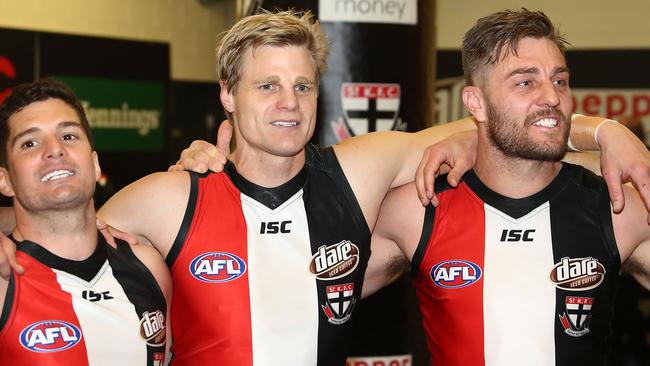
But the fact is Fisher took drugs while playing football, sought help to stop that, was a “little bit lost after football”, and six years after completing football was allegedly trafficking drugs.
“He would’ve got lost after retiring because he was all football. Sam is a lovely bloke, he was 100 per cent popular with his teammates,” a former official said.
“And to say he got no support from the club is not true.
“There were discussions with the doctor and Sam was told he had to work with the doctor.
“The AFL takes the view that it’s medical, so it’s medical privilege. It was between Sam and the doctor.”
He added: ‘’It’s very usual for players to go to the doctor. If you look across the football environment there might be any amount of players dealing with the club doctor, but the club doesn’t know.’’
It’s not known if Fisher received strikes for having banned drugs in his system through his playing career.
But if Fisher was placed in the AFL’s “medial group“, he would’ve been regularly tested but no strikes recorded.
It’s believed former Carlton and Richmond player, Chris Yarran, was a member of the medical group, as were at least two current-day players.




